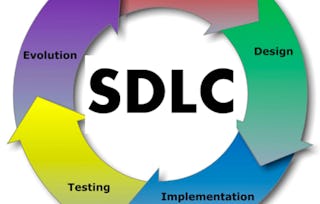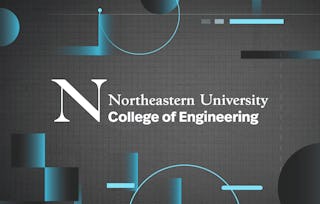This course provides an introduction to a few of the main development methodologies used by application programmers today. These methodologies provide a framework and structure for the process of development to ensure teams can work together and all critical steps are followed. We'll discuss the Software Development Lifecycle (SDLC), Agile concepts, Continuous Integration/Continuous Delivery and 12 Factor for cloud development.

Development Methodologies Overview

Development Methodologies Overview
This course is part of Introduction to Application Development Specialization


Instructors: Evan Bergman
3,009 already enrolled
Included with
Recommended experience
Skills you'll gain
- Software Development Methodologies
- Computer Programming
- Continuous Integration
- Agile Methodology
- Software Development
- Cloud Computing Architecture
- Software Engineering
- Kubernetes
- Continuous Delivery
- CI/CD
- Cloud Development
- Jenkins
- Software Development Life Cycle
- Scrum (Software Development)
- Agile Software Development
- Cloud Applications
Details to know

Add to your LinkedIn profile
6 assignments
See how employees at top companies are mastering in-demand skills

Build your subject-matter expertise
- Learn new concepts from industry experts
- Gain a foundational understanding of a subject or tool
- Develop job-relevant skills with hands-on projects
- Earn a shareable career certificate

There are 4 modules in this course
In this module, we'll list the topics covered in this curriculum. We'll also discuss the Software Development Lifecycle (SDLC), development methodologies, and structured methodologies versus unified methodologies.
What's included
6 videos4 readings2 assignments
In this module, we'll introduce some Agile concepts, discuss methodologies and tools, look at how Agile manages risks, and explore the Agile Manifesto. We will also explore Agile roles, Sprint meetings, and planning a Sprint.
What's included
8 videos8 readings2 assignments1 discussion prompt
In this module, we will compare and contrast Continuous Integration, Continuous Delivery, and Continuous Deployment. We will also the capabilities of the Jenkins automation server.
What's included
3 videos3 readings1 assignment
In this module, we'll be exploring the 12 factor App methodology. We will look at how it applies to Cloud Native apps and how it can be used in Kubernetes.
What's included
13 videos4 readings1 assignment
Earn a career certificate
Add this credential to your LinkedIn profile, resume, or CV. Share it on social media and in your performance review.
Offered by
Explore more from Software Development
 Status: Free Trial
Status: Free TrialAmazon
 Status: Free Trial
Status: Free TrialUniversity of Minnesota
 Status: Preview
Status: PreviewNortheastern University
 Status: Preview
Status: PreviewNortheastern University
Why people choose Coursera for their career

Felipe M.

Jennifer J.

Larry W.

Chaitanya A.

Open new doors with Coursera Plus
Unlimited access to 10,000+ world-class courses, hands-on projects, and job-ready certificate programs - all included in your subscription
Advance your career with an online degree
Earn a degree from world-class universities - 100% online
Join over 3,400 global companies that choose Coursera for Business
Upskill your employees to excel in the digital economy
Frequently asked questions
To access the course materials, assignments and to earn a Certificate, you will need to purchase the Certificate experience when you enroll in a course. You can try a Free Trial instead, or apply for Financial Aid. The course may offer 'Full Course, No Certificate' instead. This option lets you see all course materials, submit required assessments, and get a final grade. This also means that you will not be able to purchase a Certificate experience.
When you enroll in the course, you get access to all of the courses in the Specialization, and you earn a certificate when you complete the work. Your electronic Certificate will be added to your Accomplishments page - from there, you can print your Certificate or add it to your LinkedIn profile.
Yes. In select learning programs, you can apply for financial aid or a scholarship if you can’t afford the enrollment fee. If fin aid or scholarship is available for your learning program selection, you’ll find a link to apply on the description page.
More questions
Financial aid available,

